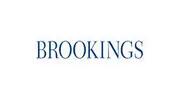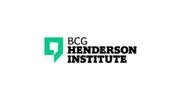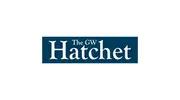Media Coverage

Finder
Teaching kids how to manage their money is one of the most important lessons parents can impart.
If you missed a few opportunities to teach your kids about money in the past, you can make up for the lost time by trying these tactics with your teens.
Consider adding your teen as an authorized user on a credit card once they get a job. This way they start learning the responsibility of paying off their balance on time and in full. “If they prove to be responsible with its use, older teens may eventually get a low-limit credit card backed by their parents. Urge them to pay the balance off in full each month, and if it isn’t, consider terminating the card or placing it on a freeze until responsible credit behavior is established,” says John Longo, professor of finance at Rutgers University and the author of Buffett’s Tips: A Guide to Financial Literacy and Life.
If you missed a few opportunities to teach your kids about money in the past, you can make up for the lost time by trying these tactics with your teens.
Consider adding your teen as an authorized user on a credit card once they get a job. This way they start learning the responsibility of paying off their balance on time and in full. “If they prove to be responsible with its use, older teens may eventually get a low-limit credit card backed by their parents. Urge them to pay the balance off in full each month, and if it isn’t, consider terminating the card or placing it on a freeze until responsible credit behavior is established,” says John Longo, professor of finance at Rutgers University and the author of Buffett’s Tips: A Guide to Financial Literacy and Life.

Freakonomics
The pandemic may be winding down, but that doesn’t mean we’ll return to full-time commuting and packed office buildings. The greatest accidental experiment in the history of labor has lessons to teach us about productivity, flexibility, and even reversing the brain drain. But don’t buy another dozen pairs of sweatpants just yet.
Stephen J. Dubner talks with Morris A. Davis, Professor and Paul V. Profeta Chair in Real Estate.
Listen to the podcast with transcript.
Stephen J. Dubner talks with Morris A. Davis, Professor and Paul V. Profeta Chair in Real Estate.
Listen to the podcast with transcript.

Verify
Chinese citizens have been barred from trading in virtual currencies for years, Merav Ozair told VERIFY.
“I always say, China is a very interesting place in the world when it comes to everything to do with cryptocurrency and blockchain. On the one hand, you see them really investing a lot of money and time and effort and minds into blockchain development,” Ozair said.
“When it comes to technology they are very much ahead of the curve. It is a very interesting place when you think about how they see the blockchain space - technology yes, trading no,” she added. Most major virtual mining operations originated from China, she said, despite China first prohibiting financial transactions in bitcoin in 2013.
“I always say, China is a very interesting place in the world when it comes to everything to do with cryptocurrency and blockchain. On the one hand, you see them really investing a lot of money and time and effort and minds into blockchain development,” Ozair said.
“When it comes to technology they are very much ahead of the curve. It is a very interesting place when you think about how they see the blockchain space - technology yes, trading no,” she added. Most major virtual mining operations originated from China, she said, despite China first prohibiting financial transactions in bitcoin in 2013.

Quick and Dirty Tips
Avoid Your Mobile Phone During Learning Breaks
Research by professors Sanghoon Kang and Terri Kurtzberg from Rutgers Business School has revealed that using a mobile phone for a break does not allow your brain to recharge as effectively as the other types of breaks.5 They note: “As people are increasingly addicted to their cell phones, it is important to know the unintended costs associated with reaching for this device every spare minute. Although people may assume that it is not different from any other kind of interaction or break, this study shows that the phone might be more cognitively taxing than expected.”
Research by professors Sanghoon Kang and Terri Kurtzberg from Rutgers Business School has revealed that using a mobile phone for a break does not allow your brain to recharge as effectively as the other types of breaks.5 They note: “As people are increasingly addicted to their cell phones, it is important to know the unintended costs associated with reaching for this device every spare minute. Although people may assume that it is not different from any other kind of interaction or break, this study shows that the phone might be more cognitively taxing than expected.”

The Buttonwood Tree
In terms of this crackdown from China, the impact could be short-term. “The effect is short-term,” Dr. Merav Ozair, FinTech Faculty member at Rutgers Business School, told The Buttonwood Tree. “Long term we should focus on the technology – blockchain technology. The technology is here to stay. Like with the internet, more than 20 years ago, when we had volatility and the dot.com bust, but we survived it, and today we cannot imagine our lives without internet – so would Blockchain technology. Thus, Blockchain technology is the future. It is here to stay, and it is at the core of any digital asset – it’s the next generation. The internet is referred to as Web 2.0 and Blockchain is referred to as Web 3.0.”

BBC: The Inquiry
In 2005 a photo of four-year-old Zoë Roth standing in front of a burning house went viral on the internet. It became a meme known as “disaster girl”. In April 2021, the image sold for $473,000 as an NFT, or non-fungible token - that’s sort of a digital record of ownership.
And the sales keep coming. Another NFT recently sold for $69 million. The first-ever Tweet went for a huge $2.9 million … and a GIF of a pixelated rainbow cat sold for $690,000.
But what is an NFT, and is it really the next big thing? Suzanne Kianpour explores the world of NFT’s speaking with Merav Ozair.
Listen to the podcast.
And the sales keep coming. Another NFT recently sold for $69 million. The first-ever Tweet went for a huge $2.9 million … and a GIF of a pixelated rainbow cat sold for $690,000.
But what is an NFT, and is it really the next big thing? Suzanne Kianpour explores the world of NFT’s speaking with Merav Ozair.
Listen to the podcast.

Daily Mail
Anticipating the start of a fun event like a holiday can make it feel like it is nearly over as soon as the actual event begins, according to a study into the perception of time.
Four independent studies published in the Journal of Consumer Psychology found that anticipation and excitement had an impact on perception of time.
'People feel like the beginning and the end of their time off are similarly far from the present,' Malkoc said.
'In other words, in their mind's eye, the vacation is over as soon as it begins. It has no duration,' despite how long it may actually last in real time.
'Thinking about future positive and negative events leads people to take two different paths to the same conclusion,' said co-author Gabriela Tonietto of Rutgers Business School.
Four independent studies published in the Journal of Consumer Psychology found that anticipation and excitement had an impact on perception of time.
'People feel like the beginning and the end of their time off are similarly far from the present,' Malkoc said.
'In other words, in their mind's eye, the vacation is over as soon as it begins. It has no duration,' despite how long it may actually last in real time.
'Thinking about future positive and negative events leads people to take two different paths to the same conclusion,' said co-author Gabriela Tonietto of Rutgers Business School.

ROI-NJ
Rutgers Business School Dean Lei Lei expressed appreciation for M&T Bank’s willingness to provide the funding to fuel CUEED’s efforts.
“We are grateful for M&T’s generous investment in a fund that CUEED has created to assist vital Black-owned businesses and to ensure that our communities remain economically strong,” she said. “At Rutgers Business School, we believe we should play a role in helping to strengthen our communities. With the commitment of partners like M&T Bank, CUEED plays a critical role in our ability to have that social impact.”
CUEED Executive Director Lyneir Richardson said the purpose of the new fund is to strengthen and enhance the efforts of NJ BEST, a program funded by the U.S. Cares Act to enable the Small Business Development Center offices and other community-based groups in New Jersey to help 25 Black-owned High-Impact Vital Enterprises recover from the economic turmoil of the past year.
“It is well documented that Black business owners desperately needed financial resources, in addition to technical assistance and entrepreneurial management consulting, to survive the COVID-19 pandemic and position their businesses to thrive in the post-pandemic economy,” he said.
“We are grateful for M&T’s generous investment in a fund that CUEED has created to assist vital Black-owned businesses and to ensure that our communities remain economically strong,” she said. “At Rutgers Business School, we believe we should play a role in helping to strengthen our communities. With the commitment of partners like M&T Bank, CUEED plays a critical role in our ability to have that social impact.”
CUEED Executive Director Lyneir Richardson said the purpose of the new fund is to strengthen and enhance the efforts of NJ BEST, a program funded by the U.S. Cares Act to enable the Small Business Development Center offices and other community-based groups in New Jersey to help 25 Black-owned High-Impact Vital Enterprises recover from the economic turmoil of the past year.
“It is well documented that Black business owners desperately needed financial resources, in addition to technical assistance and entrepreneurial management consulting, to survive the COVID-19 pandemic and position their businesses to thrive in the post-pandemic economy,” he said.

Fast Company
People enjoy content even more when it’s a pleasant surprise. But getting it wrong is a real risk.
Kristina Durante was driving in her car one day when “Material Girl” by Madonna came on the radio. It’s a song she’d heard countless times, of course, but not in a long while. “How had I forgotten what a gem this song is!?” Durante thought, as she cranked it up loudly. Later, recalling the thrill of the moment, Durante did what a lot of us would do: She downloaded it, and put it into her music library.
“I played it, remembering how much I loved it,” says Durante. “And when it was on my playlist, I was like, ‘It just isn’t the same.'”
Durante’s story is probably familiar to many of us. Whether it’s a song on the radio, or a free sample at a store, these surprises—these moments of serendipity—make us appreciate the little things so much more than if they were planned. But as a professor of marketing at Rutgers, Durante could do something most of us couldn’t. She and her team enlisted hundreds of people who took part in nearly half a dozen experiments, just to answer that question: Do we really enjoy things more when they’re serendipitous discoveries rather than something we carefully choose ourselves?
It turns out, we do. And the phenomenon is significant enough that Durante believes that products should be designed around surprise rather than painstaking curation.
Kristina Durante was driving in her car one day when “Material Girl” by Madonna came on the radio. It’s a song she’d heard countless times, of course, but not in a long while. “How had I forgotten what a gem this song is!?” Durante thought, as she cranked it up loudly. Later, recalling the thrill of the moment, Durante did what a lot of us would do: She downloaded it, and put it into her music library.
“I played it, remembering how much I loved it,” says Durante. “And when it was on my playlist, I was like, ‘It just isn’t the same.'”
Durante’s story is probably familiar to many of us. Whether it’s a song on the radio, or a free sample at a store, these surprises—these moments of serendipity—make us appreciate the little things so much more than if they were planned. But as a professor of marketing at Rutgers, Durante could do something most of us couldn’t. She and her team enlisted hundreds of people who took part in nearly half a dozen experiments, just to answer that question: Do we really enjoy things more when they’re serendipitous discoveries rather than something we carefully choose ourselves?
It turns out, we do. And the phenomenon is significant enough that Durante believes that products should be designed around surprise rather than painstaking curation.

Morning Star
CHAMPIONS OF WOMEN'S LEADERSHIP: The cause of gender equality continues to gain momentum, but there is still a lot of work to be done. Supporting women to be on track toward leadership, whether in the business, institutional or academic spaces we occupy, will mandate critical changes. These panelists share their unique perspectives on the challenges and opportunities to gaining leadership today and on becoming more comfortable with raising your hand for new leadership responsibilities.
Keynote Message: Congresswoman Kathy Manning, U.S. Representative (D-North Carolina)
Moderator: Lisa Kaplowitz, Founder and Executive Director of the Center for Women in Business, Rutgers University
Fran Horowitz, CEO, Abercrombie & Fitch Co.
Cynthia "Cynt" Marshall, CEO of the Dallas Mavericks; President & CEO, Marshalling Resources Consulting
Rear Admiral Aisha K. Mix, Assistant Surgeon General, Chief Nurse Officer for the U.S. Public Health Service Commissioned Corps
Keynote Message: Congresswoman Kathy Manning, U.S. Representative (D-North Carolina)
Moderator: Lisa Kaplowitz, Founder and Executive Director of the Center for Women in Business, Rutgers University
Fran Horowitz, CEO, Abercrombie & Fitch Co.
Cynthia "Cynt" Marshall, CEO of the Dallas Mavericks; President & CEO, Marshalling Resources Consulting
Rear Admiral Aisha K. Mix, Assistant Surgeon General, Chief Nurse Officer for the U.S. Public Health Service Commissioned Corps

CNBC
The mission of the Disruptor 50 list has always been to identify fast-growing, innovative start-ups on the path to becoming the next generation of great public companies. But in 2020, things got ridiculous. Twelve of the 50 companies named to the 2020 Disruptor 50 are now public companies. Four more have announced deals to become public via mergers with special purpose acquisition companies.
Special thanks to the 2021 CNBC Disruptor 50 Advisory Council, who again offered us their time and insights. As always, we appreciate their contributions.
[The 47 members of the 2021 CNBC Disruptor 50 Advisory Council includes]
Lyneir Richardson, assistant professor of Professional Practice, Rutgers University
Special thanks to the 2021 CNBC Disruptor 50 Advisory Council, who again offered us their time and insights. As always, we appreciate their contributions.
[The 47 members of the 2021 CNBC Disruptor 50 Advisory Council includes]
Lyneir Richardson, assistant professor of Professional Practice, Rutgers University

PHYS ORG
Researchers from the University of Sydney, University of Florida, and Rutgers University published a new paper in the Journal of Marketing that examines the role of serendipity in customer satisfaction and how marketers can provide it.
The study, forthcoming in the Journal of Marketing, is titled "Serendipity: Chance Encounters in the Marketplace Enhance Consumer Satisfaction" and is authored by Aekyoung Kim, Felipe Affonso, Juliano Laran, and Kristina Durante.
The study, forthcoming in the Journal of Marketing, is titled "Serendipity: Chance Encounters in the Marketplace Enhance Consumer Satisfaction" and is authored by Aekyoung Kim, Felipe Affonso, Juliano Laran, and Kristina Durante.

ROI-NJ
Leaders at real estate programs at Rutgers, Monmouth both say more opportunities are good for students and industry in N.J.
Morris Davis, the Paul V. Profeta Chair of Real Estate and the academic director of the Rutgers Center for Real Estate, said he sees the NJIT program as a potential partner, too.
“If there’s a way we can work together, I’d be all for it,” he said.
“My view is, any investment in any real estate program in New Jersey is just good for the state. NJIT is now going to invest in real estate education and their students are going to be well-trained. That’s good for everyone.”
Morris Davis, the Paul V. Profeta Chair of Real Estate and the academic director of the Rutgers Center for Real Estate, said he sees the NJIT program as a potential partner, too.
“If there’s a way we can work together, I’d be all for it,” he said.
“My view is, any investment in any real estate program in New Jersey is just good for the state. NJIT is now going to invest in real estate education and their students are going to be well-trained. That’s good for everyone.”

WalletHub
New Jersey ranks 48th for the cheapest rates in the country, which makes it especially important for drivers to shop around for car insurance.
Ask the experts
Can (John) Uslay Ph.D., Vice-Dean, Academic Programs and Innovations, Professor of Marketing, Chair, Entrepreneurial Marketing SIG, AMA, Rutgers Business School at Newark and New Brunswick.
Why are car insurance prices so different from state to state?
The cost for car insurance, similar to real estate prices, varies dramatically based on several factors such as demand, population density, crime rates, and average claim rates and amounts based on the zip code. In addition, states have varying minimum liability requirements which can impact the resulting rates.
Are car insurance companies really able to save drivers as much as they advertise?
The chances of the savings are not random, and they are indeed generating the advertised savings for a certain group of consumers otherwise the FTC would get on their case. However, the chances that you belong to that well-defined group of customers are low. Your results will vary. Read the fine print and make sure to review the quotes for the same level of service. Numbers do not lie but ironically statistics do!
Ask the experts
Can (John) Uslay Ph.D., Vice-Dean, Academic Programs and Innovations, Professor of Marketing, Chair, Entrepreneurial Marketing SIG, AMA, Rutgers Business School at Newark and New Brunswick.
Why are car insurance prices so different from state to state?
The cost for car insurance, similar to real estate prices, varies dramatically based on several factors such as demand, population density, crime rates, and average claim rates and amounts based on the zip code. In addition, states have varying minimum liability requirements which can impact the resulting rates.
Are car insurance companies really able to save drivers as much as they advertise?
The chances of the savings are not random, and they are indeed generating the advertised savings for a certain group of consumers otherwise the FTC would get on their case. However, the chances that you belong to that well-defined group of customers are low. Your results will vary. Read the fine print and make sure to review the quotes for the same level of service. Numbers do not lie but ironically statistics do!

NJ Spotlight News
Financial technology, or fintech, is changing how we earn, spend and invest money.
Rhonda Schaffler sits down with fintech experts to discuss the rise and volatility of cryptocurrency, the exploding interest in non-fungible tokens (NFTs) and how the state plans to both promote and regulate the fintech industry.
Plus, Rhonda breaks down the major headlines of the week, including the lifting of pandemic-related restrictions in New Jersey.
00:00 - Open
02:09 - Easing Restrictions
03:03 - Esports
06:50 - Future of Work Accelerator
07:36 - Workplace Inclusivity
08:36 - Cryptocurrency
13:08 - NFTs
17:21 - Fintech
21:44 - Crypto Warning
25:35 - Credits
Rhonda Schaffler sits down with fintech experts to discuss the rise and volatility of cryptocurrency, the exploding interest in non-fungible tokens (NFTs) and how the state plans to both promote and regulate the fintech industry.
Plus, Rhonda breaks down the major headlines of the week, including the lifting of pandemic-related restrictions in New Jersey.
00:00 - Open
02:09 - Easing Restrictions
03:03 - Esports
06:50 - Future of Work Accelerator
07:36 - Workplace Inclusivity
08:36 - Cryptocurrency
13:08 - NFTs
17:21 - Fintech
21:44 - Crypto Warning
25:35 - Credits

DSNews
The Federal Housing Finance Administration (FHFA) Friday released a revised working paper entitled, "A Quarter Century of Mortgage Risk," with the intention of improving policymakers' understanding of how mortgage risk has evolved over time and the role it played in the 2008 recession, FHFA said in a press release.
The paper—written and researched by William Larson of FHFA, Morris Davis of Rutgers University, Stephen Oliner of the American Enterprise Institute, and Benjamin Smith of the University of Pennsylvania—can be read in full at FHFA.gov. And it identifies three key findings, according to its authors:
Mortgage risk accumulation started earlier than previously thought.
Risk accumulated with borrowers across all credit scores.
FHFA's expanded data set, the press release explains, led to an additional key finding, which is that mortgage risk is accumulating again in America today.
The paper—written and researched by William Larson of FHFA, Morris Davis of Rutgers University, Stephen Oliner of the American Enterprise Institute, and Benjamin Smith of the University of Pennsylvania—can be read in full at FHFA.gov. And it identifies three key findings, according to its authors:
Mortgage risk accumulation started earlier than previously thought.
Risk accumulated with borrowers across all credit scores.
FHFA's expanded data set, the press release explains, led to an additional key finding, which is that mortgage risk is accumulating again in America today.

ROI-NJ
Rutgers Law School co-Dean David Lopez, who oversees the school in Newark, will step down from his post as of June 30, the school announced this week.
Rutgers-Newark Chancellor Nancy Cantor and Provost Ashwani Monga praised Lopez in a statement to the community:
“David’s leadership has been pivotal in advancing the school’s groundbreaking publicly engaged scholarship on everything from child advocacy and corporate governance to desegregating schools, expanding the rights of immigrants, advocating for equitable growth and achieving algorithmic justice; setting a new standard for engagement with alumni, especially in celebration of the 50th anniversary of the school’s signature Minority Student Program; and the pursuit of racial justice through the law school faculty’s adoption of a resolution last year to develop anti-racist curricular reforms, responding forthrightly to America’s rising consciousness of the need to transform our institutions.
“We could not have hoped for a more forceful advocate and capable ally in all of these areas, which are as critical to our institutional identity and priorities as they are to the law school’s.”
Rutgers-Newark Chancellor Nancy Cantor and Provost Ashwani Monga praised Lopez in a statement to the community:
“David’s leadership has been pivotal in advancing the school’s groundbreaking publicly engaged scholarship on everything from child advocacy and corporate governance to desegregating schools, expanding the rights of immigrants, advocating for equitable growth and achieving algorithmic justice; setting a new standard for engagement with alumni, especially in celebration of the 50th anniversary of the school’s signature Minority Student Program; and the pursuit of racial justice through the law school faculty’s adoption of a resolution last year to develop anti-racist curricular reforms, responding forthrightly to America’s rising consciousness of the need to transform our institutions.
“We could not have hoped for a more forceful advocate and capable ally in all of these areas, which are as critical to our institutional identity and priorities as they are to the law school’s.”

Courier
It sounds like a nice problem to have, but experiencing hyper-growth brings with it a unique set of challenges. How does the theory of how to handle it compare to what actually happens on the ground?
The theory
Jeffrey Robinson is associate professor and academic director of The Center for Urban Entrepreneurship & Economic Development at Rutgers Business School. Here he outlines the five Ms founders have to think about.
Marketing, Money, Management, Mentoring, Mergers
'After hyper-growth, it’s no longer about selling your product or service one at a time. Instead, it becomes about how you’re interacting with wholesalers or large-scale distributors – all relationships that come with intermediaries. If you’re dealing directly with consumers, how do you maintain the customer feedback loop? Having customer relationship management is not something that solo business owners are usually prepared to do. If your strength isn't in marketing, then who are you partnering with to do it internally and externally?'
The theory
Jeffrey Robinson is associate professor and academic director of The Center for Urban Entrepreneurship & Economic Development at Rutgers Business School. Here he outlines the five Ms founders have to think about.
Marketing, Money, Management, Mentoring, Mergers
'After hyper-growth, it’s no longer about selling your product or service one at a time. Instead, it becomes about how you’re interacting with wholesalers or large-scale distributors – all relationships that come with intermediaries. If you’re dealing directly with consumers, how do you maintain the customer feedback loop? Having customer relationship management is not something that solo business owners are usually prepared to do. If your strength isn't in marketing, then who are you partnering with to do it internally and externally?'

NJ.com
Entrepreneurs often thrive in times of uncertainty, said Rutgers Business School professor Gary Minkoff, who also chairs the advisory board for the school’s Small Business Development Center.
They see opportunities in what many perceive to be problems, he explained. But taking the leap into entrepreneurship can often feel like a necessity, Minkoff said.
The internet and social media offer relatively new opportunities to start a business and gain an initial customer base with far less of an initial investment than a brick-and-mortar business would require, Minkoff said.
“People who have a particular skillset now have platforms to build audiences and followings in ways they hadn’t before,” he said.
They see opportunities in what many perceive to be problems, he explained. But taking the leap into entrepreneurship can often feel like a necessity, Minkoff said.
The internet and social media offer relatively new opportunities to start a business and gain an initial customer base with far less of an initial investment than a brick-and-mortar business would require, Minkoff said.
“People who have a particular skillset now have platforms to build audiences and followings in ways they hadn’t before,” he said.

TechUnited
After reviewing over 120 nominations, TechUnited:NJ and its Selection Committee honored 12 winners at its 2021 Catalyst Awards, a virtual event on Thursday, May 20th, 2021.
“The definition of catalyst is ‘an agent that provokes or speeds significant change or action’. The term catalyst couldn’t more appropriately represent the incredible leaders we celebrated at this year’s TechUnited Catalyst Awards. We are thrilled to showcase them all as exemplary members of our incredible technology community. Congratulations to all of our remarkable nominees and winners. You continue to inspire and catalyze us all. ” shared TechUnited CEO Aaron Price.
2021 awards include:
Lyneir Richardson, Executive Director of the Rutgers Center for Urban Entrepreneurship and Economic Development, Rutgers Business School is the winner of the 2021 Catalyst Of Progress Award, sponsored by Grant Thornton LLP. This award is presented to an individual who promotes & actively supports diversity, inclusion, and equity.
“The definition of catalyst is ‘an agent that provokes or speeds significant change or action’. The term catalyst couldn’t more appropriately represent the incredible leaders we celebrated at this year’s TechUnited Catalyst Awards. We are thrilled to showcase them all as exemplary members of our incredible technology community. Congratulations to all of our remarkable nominees and winners. You continue to inspire and catalyze us all. ” shared TechUnited CEO Aaron Price.
2021 awards include:
Lyneir Richardson, Executive Director of the Rutgers Center for Urban Entrepreneurship and Economic Development, Rutgers Business School is the winner of the 2021 Catalyst Of Progress Award, sponsored by Grant Thornton LLP. This award is presented to an individual who promotes & actively supports diversity, inclusion, and equity.

Academy of International Business
This video series was developed to introduce the IB community to the people behind some of the most widely cited studies in our field. Each interview spans about 30 minutes, covering a range of topics including the author’s professional journey, an overview of their body of work, and a number of topics they find promising for future research.
View and listen to the video recording
View and listen to the video recording

Money Geek
Financial Expert Advice: Saving and Investing
John Longo
Professor of Finance at Rutgers Business School; Author of Buffett's Tips: A Guide to Financial Literacy and Life
How much should beginners invest in stocks and bonds? And when is a good time to increase those investments?
Before someone starts investing, the first thing to remember is to live within your means. For example, if you have outstanding bills or high-interest credit cards you should pay them off first before investing. Then you should contribute some funds towards an emergency fund, such that you have at least 3 months of living expenses, with the goal of eventually building this up to 12 months of expenses. Regarding stocks and bonds, a rough rule of thumb is to have 60% in stocks and 40% in bonds. With interest rates so low today, I would favor an increased allocation to equities if someone has a long-term time horizon.
I would also encourage people to set up a global portfolio, which is easy to do today with various low-cost ETFs and index funds out there. In terms of the balance between the two (stocks vs. bonds) a good long-term strategy is to add more to the asset class that has underperformed. For example, if stocks have fallen sharply in recent months, it may be a good strategy to contribute a bit more to them, if you can stomach it. Beginning investors usually have time on their side so they can usually afford to take on a little more risk, if they are already living within their means and have an emergency fund put aside.
John Longo
Professor of Finance at Rutgers Business School; Author of Buffett's Tips: A Guide to Financial Literacy and Life
How much should beginners invest in stocks and bonds? And when is a good time to increase those investments?
Before someone starts investing, the first thing to remember is to live within your means. For example, if you have outstanding bills or high-interest credit cards you should pay them off first before investing. Then you should contribute some funds towards an emergency fund, such that you have at least 3 months of living expenses, with the goal of eventually building this up to 12 months of expenses. Regarding stocks and bonds, a rough rule of thumb is to have 60% in stocks and 40% in bonds. With interest rates so low today, I would favor an increased allocation to equities if someone has a long-term time horizon.
I would also encourage people to set up a global portfolio, which is easy to do today with various low-cost ETFs and index funds out there. In terms of the balance between the two (stocks vs. bonds) a good long-term strategy is to add more to the asset class that has underperformed. For example, if stocks have fallen sharply in recent months, it may be a good strategy to contribute a bit more to them, if you can stomach it. Beginning investors usually have time on their side so they can usually afford to take on a little more risk, if they are already living within their means and have an emergency fund put aside.

Supply Chain Dive
With collaboration, supply chains have the opportunity to tell the stories of their A-plus vendors — and bank goodwill in case a bad apple is exposed.
The days of procurement as a back-office function without much of a story to tell the public are numbered. More than ever, consumers want to know where and how their products are being made, and global brands are telling the trendy tales of sustainability and transparent sourcing.
The companies that highlight the best parts of their supply chain "are getting rewarded for it," said Kevin Lyons, associate professor of professional practice at the Rutgers Business School-Newark and New Brunswick, "not only financially, but their customer base of loyalty to that particular brand has become stronger because of it."
The days of procurement as a back-office function without much of a story to tell the public are numbered. More than ever, consumers want to know where and how their products are being made, and global brands are telling the trendy tales of sustainability and transparent sourcing.
The companies that highlight the best parts of their supply chain "are getting rewarded for it," said Kevin Lyons, associate professor of professional practice at the Rutgers Business School-Newark and New Brunswick, "not only financially, but their customer base of loyalty to that particular brand has become stronger because of it."

WalletHub
Umbrella insurance is a type of insurance coverage that extends the liability insurance from an auto or homeowner’s insurance policy to cover more situations with higher limits.
Who should purchase umbrella insurance?
John M. Longo, Ph.D., CFA, Professor of Finance & Economics
Umbrella insurance makes sense for people that want to preserve assets, so they tend to be more affluent. Umbrella insurance is usually placed "on top" of your traditional car and/or homeowner insurance. So, if your auto insurance has a maximum at-fault coverage of $250,000 and your net worth is less than $250,000 it probably does not make sense to purchase umbrella insurance.
Who should purchase umbrella insurance?
John M. Longo, Ph.D., CFA, Professor of Finance & Economics
Umbrella insurance makes sense for people that want to preserve assets, so they tend to be more affluent. Umbrella insurance is usually placed "on top" of your traditional car and/or homeowner insurance. So, if your auto insurance has a maximum at-fault coverage of $250,000 and your net worth is less than $250,000 it probably does not make sense to purchase umbrella insurance.

NewsFinale
Warren Buffett ended his year-long silence at Berkshire Hathaway’s recent shareholder meeting, sharing his views on everything from airlines and SPACs, to fossil fuels and the economy.
Here’s what six experts told Insider about Buffett’s comments on those three subjects.
John Longo, author of “Buffett’s Tips: A Guide To Financial Literacy and Life” and a finance and economics professor at Rutgers Business School:
“Buffett likes to value stocks using a concept called intrinsic value, which means computing the present value of a stock’s future cash flows. The way this formula works is that you get higher values when interest rates are really low, as they are today. The ‘big tech’ companies have real earnings and fortress-like balance sheets, and they’re very global in nature, so they can keep growing at attractive rates for a long period of time. So even though these stocks are somewhat expensive compared to their historical multiples, both Buffett and I would rather own them than a long-term bond, even if it had no credit risk.”
Here’s what six experts told Insider about Buffett’s comments on those three subjects.
John Longo, author of “Buffett’s Tips: A Guide To Financial Literacy and Life” and a finance and economics professor at Rutgers Business School:
“Buffett likes to value stocks using a concept called intrinsic value, which means computing the present value of a stock’s future cash flows. The way this formula works is that you get higher values when interest rates are really low, as they are today. The ‘big tech’ companies have real earnings and fortress-like balance sheets, and they’re very global in nature, so they can keep growing at attractive rates for a long period of time. So even though these stocks are somewhat expensive compared to their historical multiples, both Buffett and I would rather own them than a long-term bond, even if it had no credit risk.”

KCUR 89.3
"Lotawana" from Kansas City filmmaker Trevor Hawkins is the first movie in history to offer shared ownership and be premiered through the cryptocurrency known as NFTs.
It is part of the ongoing trend of artists, athletes, and organizations looking to cash in on the NFT movement that is providing a new way for art of all kinds to be traded digitally.
Trevor Hawkins, writer and director of "Lotawana"
Merav Ozair, crypto and blockchain expert and FinTech faculty member at Rutgers Business School
Listen 22:51
It is part of the ongoing trend of artists, athletes, and organizations looking to cash in on the NFT movement that is providing a new way for art of all kinds to be traded digitally.
Trevor Hawkins, writer and director of "Lotawana"
Merav Ozair, crypto and blockchain expert and FinTech faculty member at Rutgers Business School
Listen 22:51

Poets&Quants
I knew that I wanted to get an MBA so I began searching for programs in and around New Jersey. I stumbled upon Rutgers due to their great ratings in veteran-support and diversity, two things I care deeply about. As I researched Rutgers, I found they had close ties to the healthcare industry. As I learned more about the opportunities available to me post-MBA through the Rutgers Office of Career Management, I realized I would be able to continue to serve a purpose higher than myself through my career choice, something that was important to me and would fill the hole left from leaving the Army.
Professor Sharon Hellman was my favorite professor. She teaches Organizational Behavior and Management Skills to first-year MBAs. She was my favorite because she was extremely passionate about what she taught but also because she used many methods of teaching to reach her students. We built towers to hold marshmallows, role-played negotiations, read case studies, read a textbook, listened to her lecture using PowerPoint, watched short videos, and even analyzed major films. This creativity in instructing is what is required to keep learning exciting, ensure lessons hit home, and link theory to practice. I was impressed by her teaching and course so much so that I applied to become her Teaching Assistant.
Professor Sharon Hellman was my favorite professor. She teaches Organizational Behavior and Management Skills to first-year MBAs. She was my favorite because she was extremely passionate about what she taught but also because she used many methods of teaching to reach her students. We built towers to hold marshmallows, role-played negotiations, read case studies, read a textbook, listened to her lecture using PowerPoint, watched short videos, and even analyzed major films. This creativity in instructing is what is required to keep learning exciting, ensure lessons hit home, and link theory to practice. I was impressed by her teaching and course so much so that I applied to become her Teaching Assistant.

The Regulatory Review
In a recent Brookings Institution report, Markus Taussig of Rutgers Business School and Edmund Malesky of Duke University praised the notice-and-comment rulemaking process for improving regulation and increasing compliance. They noted, however, that these benefits may not endure in developing countries that move the process online. To retain benefits as digital notice-and-comment becomes more popular, Taussig and Malesky recommended rigorous evaluation of the social impact of digital notice-and-comment platforms in developing countries, research and development of digital notice-and-comment system innovations to increase participant “engagement and responsiveness,” and international commitment to support evidence-based improvements. They advocated “more careful, systematic approaches to building effective regulatory systems where they are needed most.”

ValuePenguin by Lendingtree
The U.S. car insurance market is dominated by a few key players, with the 10 largest companies controlling approximately 72% of the market. Below we list all 10 auto insurers and recommend which might be best for you.
How does the perceived value of larger companies impact the smaller, yet potentially just as competitive, ones?
Many consumers feel comfort from dealing with a "perceived familiar" expert, or in this circumstance, the familiar personality (albeit a "company-created expert"). This is a perceived strength that larger companies with high levels of awareness carry as an advantage that smaller entities in the same industry rarely can match. In categories where there is a constant flow of potential new users, this is a clear competitive advantage.
Marc Kalan
Assistant Professor of Professional Practice, Department of Marketing
How does the perceived value of larger companies impact the smaller, yet potentially just as competitive, ones?
Many consumers feel comfort from dealing with a "perceived familiar" expert, or in this circumstance, the familiar personality (albeit a "company-created expert"). This is a perceived strength that larger companies with high levels of awareness carry as an advantage that smaller entities in the same industry rarely can match. In categories where there is a constant flow of potential new users, this is a clear competitive advantage.
Marc Kalan
Assistant Professor of Professional Practice, Department of Marketing

Yahoo Finance
Delivering Good, the 501(c)(3) organization that supports people affected by poverty and tragedy through new merchandise donations from retailers and manufacturers, is launching its first virtual three-part Women of Inspiration roundtable series on Wednesdays: June 2nd, June 9th, and June 16th from 12-1pm ET.
Wednesday, June 2, 2021
CHAMPIONS OF WOMEN’S LEADERSHIP
The cause of gender equality continues to gain momentum, but there is still a lot of work to be done. Supporting women to be on track toward leadership, whether in the business, institutional or academic spaces we occupy, will mandate critical changes. This panel will share their unique perspective on the challenges and opportunities to gaining leadership today and on overcoming challenges to be more comfortable with raising your hand for new leadership responsibilities.
Fran Horowitz, CEO, Abercrombie & Fitch Co.
Lisa Kaplowitz, Founder and Executive Director of the Center for Women in Business, Rutgers University
Congresswoman Kathy Manning, U.S. Representative (D-North Carolina)
Cynthia “Cynt” Marshall, CEO of the Dallas Mavericks; President & CEO, Marshalling Resources Consulting
Rear Admiral (RADM) Aisha K. Mix, Assistant Surgeon General, Chief Nurse Officer for the U.S. Public Health Service Commissioned Corps
Wednesday, June 2, 2021
CHAMPIONS OF WOMEN’S LEADERSHIP
The cause of gender equality continues to gain momentum, but there is still a lot of work to be done. Supporting women to be on track toward leadership, whether in the business, institutional or academic spaces we occupy, will mandate critical changes. This panel will share their unique perspective on the challenges and opportunities to gaining leadership today and on overcoming challenges to be more comfortable with raising your hand for new leadership responsibilities.
Fran Horowitz, CEO, Abercrombie & Fitch Co.
Lisa Kaplowitz, Founder and Executive Director of the Center for Women in Business, Rutgers University
Congresswoman Kathy Manning, U.S. Representative (D-North Carolina)
Cynthia “Cynt” Marshall, CEO of the Dallas Mavericks; President & CEO, Marshalling Resources Consulting
Rear Admiral (RADM) Aisha K. Mix, Assistant Surgeon General, Chief Nurse Officer for the U.S. Public Health Service Commissioned Corps

Royal Statistical Society
Betting is central to the history of probability and the way probability is intuitively understood, making it both natural to link betting to statistical analysis and curious that this connection is absent from conventional statistical thinking.
Shafer’s view is more palatable for science, where personal opinions should take a back seat to objective reality—though sadly this is not always the case (Crane et al., 2020).
So I advocate to take Shafer’s proposal even more seriously than he suggests, by restoring fundamental principles of probability and risk to statistical work, not simply using a different language.
Shafer’s view is more palatable for science, where personal opinions should take a back seat to objective reality—though sadly this is not always the case (Crane et al., 2020).
So I advocate to take Shafer’s proposal even more seriously than he suggests, by restoring fundamental principles of probability and risk to statistical work, not simply using a different language.

Brookings Institution
There is clear evidence that societies benefit when governments provide citizens with opportunities to provide feedback during the drafting of new regulations. The primary systematic means of such government consultation, known as “notice-and-comment” (N&C), involves posting draft regulations for public comment and has multiple benefits. First, such consultation taps into the wisdom of the crowd to help avoid obvious errors and unintended consequences. Second, and the focus of this discussion, it increases the legitimacy of resulting rules in the eyes of the regulated and their communities, spurring higher and more sustainable rates of compliance.

Forbes
Netflix and Amazon’s Prime Video know you are tired of choice. Both streaming services recently introduced what might be the perfect hack: a shuffle button that eliminates choice and plays a randomly selected program for the consumer.
Under Covid-19 restrictions, the newly homebound were happy to have so many programming options, but this faded over time. New research we conducted with marketing researchers Aekyoung Kim (University of Sydney) and Felipe Affonso (University of Florida) suggests that being able to choose can backfire, because deliberate choice erases the magic of serendipity.
Under Covid-19 restrictions, the newly homebound were happy to have so many programming options, but this faded over time. New research we conducted with marketing researchers Aekyoung Kim (University of Sydney) and Felipe Affonso (University of Florida) suggests that being able to choose can backfire, because deliberate choice erases the magic of serendipity.

AtlantasRockStation.com
Professor Merav Ozair explained NFTs and digital currency on the Bailey & Southside show on ROCK 100.5 FM (WNNX), AtlantasRockStation.com
Listen to the recording.
Listen to the recording.

Jersey Matters
Larry Mendte interviews Dr. Merav Ozair, Associate Professor of Finance and FinTech Faculty Member at Rutgers Business School, about investing in Cryptocurrency.

The Athletic
Merav Ozair, a data scientist and crypto/blockchain expert at Rutgers University’s business school, likened Zed Run to one of the early popular public-facing NFTs, CryptoKitties. Created in 2017 by Canada’s Dapper Labs that also makes NBA Top Shot, CryptoKitties are NFT cats that can be bought and bred to make new generations with different characteristics.
“It’s taking that concept to that next level,” Ozair said. “It has more functionality.”
“It’s taking that concept to that next level,” Ozair said. “It has more functionality.”

The Conversation
The most powerful evidence for the prosecution at the trial of Derek Chauvin was a video showing the then-Minneapolis police officer pinning a pleading George Floyd to the ground by kneeling on his neck until he grew silent and then died.
On the witness stand, the teenager who captured the incident on her smartphone, 17-year-old Darnella Frazier, expressed regret for not doing more on the day of the crime.
In the case of George Floyd, the bystander effect was complicated by the power dynamics at play. Chauvin was an armed white police officer, and Frazier and the other bystanders were unarmed civilians who were mostly Black, like George Floyd himself.
On the witness stand, the teenager who captured the incident on her smartphone, 17-year-old Darnella Frazier, expressed regret for not doing more on the day of the crime.
In the case of George Floyd, the bystander effect was complicated by the power dynamics at play. Chauvin was an armed white police officer, and Frazier and the other bystanders were unarmed civilians who were mostly Black, like George Floyd himself.

Forbes
Last year, Chicago real estate investor and economic development proponent Lyneir Richardson decided it was time to step up the mission of his company. Richardson had founded Chicago TREND Corp. five years earlier to make loans to entrepreneurs of color, the better to help them open businesses and develop the economy in urban neighborhoods.
But with the pandemic and its especially heavy toll on Black Americans, along with protests over racial injustice, he readjusted his focus: help people of color own commercial real estate, thereby building wealth, while also allowing neighborhoods to thrive and local communities to feel they have a stake in that success. “We want people to experience a sense of pride and ownership,” he says. “That’s our goal—to facilitate that ownership,” he says.
But with the pandemic and its especially heavy toll on Black Americans, along with protests over racial injustice, he readjusted his focus: help people of color own commercial real estate, thereby building wealth, while also allowing neighborhoods to thrive and local communities to feel they have a stake in that success. “We want people to experience a sense of pride and ownership,” he says. “That’s our goal—to facilitate that ownership,” he says.

The Daily Targum
The event continued with a question-and-answer session where Kopp and Kevin Lyons, Task Force co-chair and an associate professor of professional practice at Rutgers Business School, fielded questions and concerns from attendees regarding the Climate Action Plan.
“An important part of this … is ensuring that students are part of this,” Lyons said. “The one good thing or positive thing about Rutgers is that we have such a large student population that is involved with climate litigation, sustainability (and) social justice issues.”
“An important part of this … is ensuring that students are part of this,” Lyons said. “The one good thing or positive thing about Rutgers is that we have such a large student population that is involved with climate litigation, sustainability (and) social justice issues.”

BCG Henderson Institute
In the absence of excessive regulation or anti-competitive practices, industries are observed to evolve toward an optimal market structure called the Rule of Three. This entails that a market with three full-line generalist firms that are volume-driven and with numerous successful small specialists that are margin-driven. In their new book, The Global Rule of Three, Can Uslay, Professor and Vice Dean for Academic Programs and Innovations, Rutgers Business School; Jagdish Sheth, Professor of Marketing at the Goizueta School of Business at Emory University; and Raj Sisodia, Professor of Global Business at Babson College argue that even after industries globalize, the Rule of Three prevails.
In a conversation with Martin Reeves, Chairman of the BCG Henderson Insitute, the authors discuss insights from their new book, and also reflect on Bruce Henderson’s original thinking on The Rule of Three and Four.
Listen to the conversation.
In a conversation with Martin Reeves, Chairman of the BCG Henderson Insitute, the authors discuss insights from their new book, and also reflect on Bruce Henderson’s original thinking on The Rule of Three and Four.
Listen to the conversation.

Super Spun Article
Eighty-eight percent of service professionals say the pandemic exposed technology gaps, and 86% say the same for service channel gaps as customers flocked away from physical locations and towards digital methods of engagement. Teams also found shortcomings that went beyond the obvious. For example, 87% realized that their existing policies and protocols — such as cancellation fees for events that were prohibited by public health measures — were not suited for current circumstances.
Faced with these challenges, service teams and their leaders are making transformations that will endure beyond the current crisis.
Faced with these challenges, service teams and their leaders are making transformations that will endure beyond the current crisis.

RIA Intel
From TikTok to Clubhouse to Discord, young Americans are flocking to social networks that many wealth managers have never heard of, let alone used. For financial advisors, keeping up with new apps and trends can feel like digital whack-a-mole. It seems every time a platform or strategy gains traction, a new one emerges.
Many advisors think that social media effectively consists of Facebook, Twitter, and LinkedIn. Not so. Newer entrants such as TikTok, Clubhouse, and Discord deserve attention alongside established heavyweights like Instagram and YouTube. That’s because their core users are trendsetting, digital-savvy young Americans and future investors, noted Dr. Merav Ozair, Assistant Professor of Professional Practice at the Rutgers Business School.
Many advisors think that social media effectively consists of Facebook, Twitter, and LinkedIn. Not so. Newer entrants such as TikTok, Clubhouse, and Discord deserve attention alongside established heavyweights like Instagram and YouTube. That’s because their core users are trendsetting, digital-savvy young Americans and future investors, noted Dr. Merav Ozair, Assistant Professor of Professional Practice at the Rutgers Business School.

Yahoo!
If you're wondering why anyone would pay millions of dollars for a tweet or gif that you could screenshot or download—you're not alone. You can definitely just save a picture or video you love and have it for free, but an NFT allows you to know you own the real, original item. "An NFT is like any other token, it has its own authentication," says Merav Ozair, PhD, a blockchain expert and fintech faculty member at Rutgers Business School. "Therefore you have an ownership you can show."

MSN
Insurance companies spend billions of dollars a year to capture the attention of Americans with witty jingles, animated mascots and slogans that stick in our brains, whether we like it or not.
Then there’s the NJM Insurance Group, the iconic 108-year-old insurance company whose branding seems frozen in time. No mascot. No catchy slogans. No smart phone application. Very little television advertising. Its low-profile approach bets that promoting customer service builds brand recognition.
Rutgers University Professor Marc Kalan, who teaches marketing, said that conservative approach was overwhelmed by the ubiquitous advertising and extremely sophisticated digital marketing national companies wield to target young drivers.
“NJM did not keep up with the competition,” he said. “I suspect NJM is one of those companies that was not looking ahead, but was rather looking at operational improvements rather than marketing more effectively to the emerging market of new drivers.”
Then there’s the NJM Insurance Group, the iconic 108-year-old insurance company whose branding seems frozen in time. No mascot. No catchy slogans. No smart phone application. Very little television advertising. Its low-profile approach bets that promoting customer service builds brand recognition.
Rutgers University Professor Marc Kalan, who teaches marketing, said that conservative approach was overwhelmed by the ubiquitous advertising and extremely sophisticated digital marketing national companies wield to target young drivers.
“NJM did not keep up with the competition,” he said. “I suspect NJM is one of those companies that was not looking ahead, but was rather looking at operational improvements rather than marketing more effectively to the emerging market of new drivers.”

Maharlika News
A Marketplace investigation into Amazon Canada has found that perfectly good items are being liquidated by the truckload — and even destroyed or sent to landfill. Experts say hundreds of thousands of returns don't end up back on the e-commerce giant's website for resale, as customers might think.
Marketplace journalists posing as potential new clients went undercover for a tour at a Toronto e-waste recycling and product destruction facility with hidden cameras. During that meeting, a representative revealed they get "tons and tons of Amazon returns," and that every week their facility is breaking apart and shredding at least one tractor-trailer load of Amazon returns, sometimes even up to three to five truckloads.
Kevin Lyons is an associate professor at Rutgers University in New Jersey who specializes in supply chain management and environmental policy. He says that 30 to 40 per cent of all online purchases are sent back.
"So you don't get a sale price or you don't get a receipt for it, but the earth is actually paying the price for this," he says. "If you think about the millions and sometimes billions of transactions that are happening on this space, the impact is incredible."
Marketplace journalists posing as potential new clients went undercover for a tour at a Toronto e-waste recycling and product destruction facility with hidden cameras. During that meeting, a representative revealed they get "tons and tons of Amazon returns," and that every week their facility is breaking apart and shredding at least one tractor-trailer load of Amazon returns, sometimes even up to three to five truckloads.
Kevin Lyons is an associate professor at Rutgers University in New Jersey who specializes in supply chain management and environmental policy. He says that 30 to 40 per cent of all online purchases are sent back.
"So you don't get a sale price or you don't get a receipt for it, but the earth is actually paying the price for this," he says. "If you think about the millions and sometimes billions of transactions that are happening on this space, the impact is incredible."

Yahoo News
Jay Soled, Rutgers School of Business Professor and Rutgers Masters in Taxation Program Director joins the Yahoo Finance Live panel to discuss estate taxes and the impact of the Tax Cuts and Jobs Act of 2017 to estate taxes.
Watch the video and/or read the transcript.
Watch the video and/or read the transcript.

Local 12
Hundreds of companies backed a joint public statement Wednesday, asserting objections to restrictive voting laws under consideration in legislatures across the country, as corporate America struggles to navigate the competing partisan impulses of consumers and politicians on both sides of divisive issues.
“We’ve seen companies make fits and starts toward being more publicly socially responsible, but doing it in a mass statement, that’s becoming more the norm, where they’re kind of teaming up as opposed to standing on their own and doing it,” said Michael Barnett, a professor of management and global business at Rutgers Business School.
“We’ve seen companies make fits and starts toward being more publicly socially responsible, but doing it in a mass statement, that’s becoming more the norm, where they’re kind of teaming up as opposed to standing on their own and doing it,” said Michael Barnett, a professor of management and global business at Rutgers Business School.

Asbury Park Press
Sephora is opening more than 60 stores this year, including one sometime this summer in Marlboro Plaza on Route 9, part of what the company says is its biggest expansion ever.
"People are dying to get out and go to locations," said Rutgers University professor Marc Kalan, who teaches in the business of fashion program at the Rutgers School of Business in Newark and New Brunswick. "They (customers) are dying to be able to experience, and beauty experiences with the female marketplace are ready for this. They've been locked up for a year."
"People are dying to get out and go to locations," said Rutgers University professor Marc Kalan, who teaches in the business of fashion program at the Rutgers School of Business in Newark and New Brunswick. "They (customers) are dying to be able to experience, and beauty experiences with the female marketplace are ready for this. They've been locked up for a year."

Smith Business Insight
If there was any doubt that the pandemic has sped up the growth of e-commerce in this country, a recent report from KPMG helped put it to rest. It found that 66 per cent of Canadians have increased their online shopping habits during the pandemic and that most will likely stick with these habits.
With all these online purchases, however, comes a significant rise in the number of returns to retailers. Kevin Lyons, an associate professor of supply chain management and environmental policy at Rutgers University, says that 30 to 40 per cent of all online purchases are returned. Compare this with 10 per cent of purchases at brick-and-mortar stores.
The big problem with all these returns is the environmental impact. Each year in the U.S. alone 3.5 billion products (worth US$400 billion) are returned, generating five billion pounds of waste. Although only 20 per cent of returned products are defective, many are liquidated or sent to landfills. Returns also create a giant carbon footprint. In the U.S., waste generated through returns each year contributes to 15 million metric tons of carbon dioxide emitted to the atmosphere.
With all these online purchases, however, comes a significant rise in the number of returns to retailers. Kevin Lyons, an associate professor of supply chain management and environmental policy at Rutgers University, says that 30 to 40 per cent of all online purchases are returned. Compare this with 10 per cent of purchases at brick-and-mortar stores.
The big problem with all these returns is the environmental impact. Each year in the U.S. alone 3.5 billion products (worth US$400 billion) are returned, generating five billion pounds of waste. Although only 20 per cent of returned products are defective, many are liquidated or sent to landfills. Returns also create a giant carbon footprint. In the U.S., waste generated through returns each year contributes to 15 million metric tons of carbon dioxide emitted to the atmosphere.

The GW Hatchet
Members of the Global Women’s Institute launched an online credential exam last month, the first of its kind, to certify experts in gender and international development.
Nancy DiTomaso, a professor of management and global business at Rutgers University, said professionals can “fill in gaps” in their knowledge of women’s issues in the field by taking the exam. She said passing the exam will help employers identify prepared and qualified candidates in the field.
“Such kinds of credentialing usually improves things for everyone,” DiTomaso said in an email. “It legitimizes the field in the sense of demonstrating that there is knowledge and skill involved.”
She said professional organizations in other fields like diversity, equity and inclusion and human resource management often create these types of standardization credentials instead of higher education institutions.
DiTomaso said universities looking to create this type of exam can better legitimize the field because their work is usually directly tied to new research and “regularly reviewed” knowledge. She said this may not be the case for professional organizations that develop credential exams.
“There are always competitors,” she said. “In a field that has not had such a credential, those who are first have to establish their credibility.”
Nancy DiTomaso, a professor of management and global business at Rutgers University, said professionals can “fill in gaps” in their knowledge of women’s issues in the field by taking the exam. She said passing the exam will help employers identify prepared and qualified candidates in the field.
“Such kinds of credentialing usually improves things for everyone,” DiTomaso said in an email. “It legitimizes the field in the sense of demonstrating that there is knowledge and skill involved.”
She said professional organizations in other fields like diversity, equity and inclusion and human resource management often create these types of standardization credentials instead of higher education institutions.
DiTomaso said universities looking to create this type of exam can better legitimize the field because their work is usually directly tied to new research and “regularly reviewed” knowledge. She said this may not be the case for professional organizations that develop credential exams.
“There are always competitors,” she said. “In a field that has not had such a credential, those who are first have to establish their credibility.”